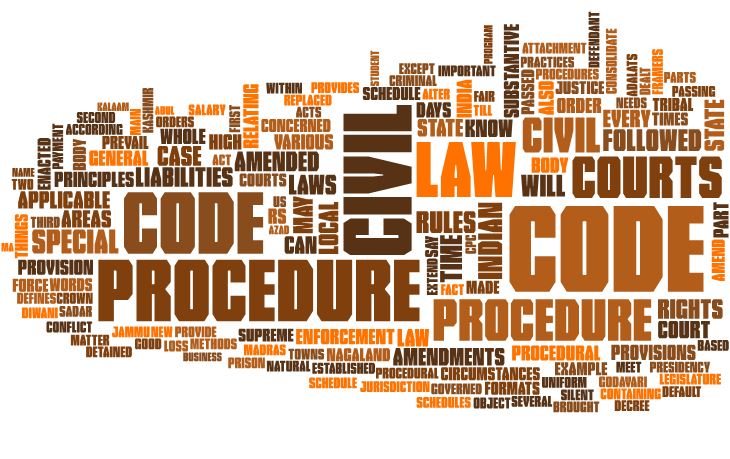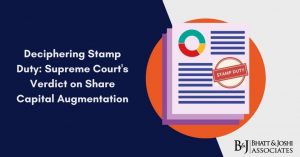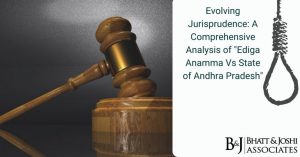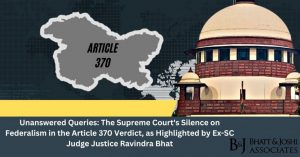Interpretation of Order XVII Rule 2 of the Code of Civil Procedure,1908: A Comprehensive Analysis
Introduction
The Code of Civil Procedure, 1908 (CPC) is a legal document that governs civil proceedings in India. It provides the framework within which civil trials are conducted, including the rules and procedures that must be followed. One such provision, Order XVII Rule 2, has recently been the subject of a significant judgment by the Supreme Court of India. This article aims to explore the interpretation of Order XVII Rule 2 CPC, focusing on the legal principles involved, and analyzing the Supreme Court’s observations in the case of YP Lele vs Maharashtra State Electricity Distribution Company Ltd.

Overview of Order XVII Rule 2 CPC
The Provision and Its Explanation
Order XVII Rule 2 CPC deals with the situation where parties or any one of them fails to appear on the adjourned date of hearing. The provision reads:
“Any party” refers to the party which has led evidence or substantial evidence and “such party” refers to that very party which has led evidence or substantial evidence – Under Order XVII Rule 2, the Court would proceed to pass orders with respect to any of the parties being absent or both the parties being absent. Whereas the explanation is confined to record the presence of that party and that party alone, which has led evidence or substantial evidence and has thereafter failed to appear.
Implications and Interpretations
The provision allows the court to dispose of the suit in one of the modes directed by Order IX or make any other order as deemed fit. The explanation to Order XVII Rule 2 further clarifies the circumstances under which the court can record the presence of the party who has led evidence and then failed to appear.
Analysing the Case of:
P Lele vs Maharashtra State Electricity Distribution Company Ltd.
Facts and Background
The case revolved around the interpretation of Order XVII Rule 2 CPC, where the defendants did not appear, and their counsel had withdrawn his Vakalatnama. An ex parte decree was passed and later set aside, leading to a legal battle that reached the Supreme Court.
The Supreme Court’s Observations
The bench of Justices Vikram Nath and Ahsanuddin Amanullah observed that the explanation to Order XVII Rule 2 CPC is confined to record the presence of the party that has led evidence or substantial evidence and has thereafter failed to appear. The court noted that the defendant had not led any evidence, and thus the explanation could not be invoked against the defendant/appellant.
Provisions of Law Involved
The table bellow provides a comprehensive view of the legal provisions referred to in the judgment, along with their exact text and the context in which they were discussed. This detailed analysis helps in understanding the legal principles involved and the interpretation of the law by the Hon’ble Supreme Court.
| Section of Law | Exact Text | Context in Judgment |
|---|---|---|
| CPC, 1908; Order XVII Rule 2 | “Any party” refers to the party which has led evidence or substantial evidence and “such party” refers to that very party which has led evidence or substantial evidence. The Court may proceed to pass orders with respect to any of the parties being absent or both the parties being absent. Whereas the explanation is confined to record the presence of that party and that party alone, which has led evidence or substantial evidence and has thereafter failed to appear.” | This provision was central to the judgment, as it guided the Court’s interpretation of how to proceed when a party fails to appear after leading evidence. The Court’s detailed analysis clarified the meaning and application of this rule. |
| CPC, 1908; Order IX | “When the defendant counsel had withdrawn his Vakalatnama, in normal course, the Trial Court ought to have issued notice to the defendants to engage another counsel.” | This provision was referred to in the context of the Trial Court’s error in proceeding ex parte without issuing notice to the defendants after their counsel withdrew. It emphasizes the procedural requirement to ensure fair representation. |
Conclusion
The judgment in this case has shed light on the intricate interpretation of Order XVII Rule 2 of CPC, 1908. It emphasizes the importance of adhering to procedural law and the need for courts to exercise caution and discretion in applying the provisions. The ruling also underscores the significance of affording opportunities to both parties so that justice is served on merits.









